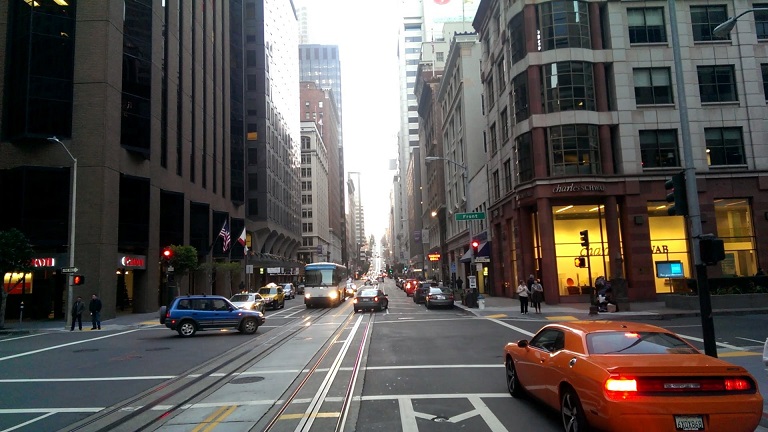California is synonymous with traffic congestion. Well, at least it was before COVID-19 arrived. As more people stay at home during the pandemic, the Golden State’s typically packed highways have cleared up quite a bit, leading to a drop in accidents.
Indeed, new data out of UC Davis suggests auto accidents in California went down 50 percent this year compared with traffic stats from March and April of 2019. Within a mere three weeks, California saved at least $1 billion due to reduced traffic.
But auto collisions aren’t the only interesting impact that Covid has had on the streets. We will cover an array of changes that California streets have adapted to in the wake of the pandemic.
California, COVID, And Collisions – What Do the Numbers Say?
According to the latest data from California Highway Patrol, traffic collisions in the Golden State have gone down by over 40 percent compared with 2019 data. CHP also points out the number of fatal crashes plummeted by 84 percent year-on-year.
In early February of 2020, there were roughly 1,049 collisions per week on CA state highways. This number dropped almost in a straight line in early April, reaching a low of around 500 weekly car crashes. Although this average increased to 794 crashes on August 10, it’s well below 2019’s rate of 1,246 weekly collisions.
When our researchers analyzed severe crash data on CA highways, the results were equally staggering. In early February, the average rate of serious car crashes was between 85 – 95 per week in 2019 and 2020. As the charts moved to August 10, weekly crash fatalities and injuries climbed to 135 in 2019, but they dropped to 78 in 2020.
Speeding Accidents “Slow Down” During Lockdown
One of the most interesting findings in our analysis was how significantly speeding crashes fell during COVID-19. Even though we often hear stories about a rise in speed demons during the pandemic, it appears weekly speeding accidents have fallen from 520 in February to less than 200 in early April. As of August 10, speeding accounted for 340 accidents per week, which is still well below the pre-COVID-19 rates.
For comparison, speeding accidents in 2019 began at 708 per week in February and ended at 649 in early August. In fact, weekly speeding crashes in 2019 only dipped below 500 once in mid-June.
Has COVID-19 Impacted DUIs In California?
While not as dramatic as data on speeding crashes, our research also suggests a slight downturn in the number of DUI crashes during COVID-19.
There were roughly 100 DUI crashes per week in 2019 and 2020 on CA highways in early February. While this number increased to 120 in late February of 2019, the 2020 stats show a drop to just over 60 DUIs per week. By mid-August, 2020’s weekly DUI crashes have gone up to 82, which is still less than the 2019 average of 103.
Cycling Is King During COVID-19 – The Rise of Micro-mobility Vehicles
Although more Californians are avoiding cars and public transit, that doesn’t mean they’re not traveling at all. Indeed, city leaders have noticed an uptick in the number of people interested in alternative modes of transportation including micro-mobility and rideshare services.
For example, sales of bicycles have skyrocketed across the USA during COVID-19. Recent estimates suggest bikes in the “affordable leisure” category climbed over 120 percent compared with March of last year. Rentable e-scooters have also become increasingly popular in cities during COVID-19.
To better accommodate this surge in micro-mobility, many Californian cities have created “Slow Streets” initiatives. In places like Oakland and San Francisco, there are now miles of residential roads closed to car traffic. City leaders hope these “Slow Streets” will provide residents with easy ways to get around the city while abiding by the CDC’s guidelines.
Rise in Delivery Drivers
Even though there are fewer motorists on CA’s highways, rideshare and delivery services have increased during COVID-19. Individuals and families have been trying to avoid crowded restaurants and grocery stores. As a result, there has been an explosion of demand for at-home dining, which means more UberEats and GrubHub drivers are hitting the roads.
With the surge of delivery drivers on the road who have to divide their attention between their navigation ap, customers, and…driving, it is no wonder that these drivers can easily cause accidents.
Car Insurance And COVID-19 – Could You Get A Reimbursement?
Considering the massive decline in traffic during COVID-19, it’s understandable why consumer advocates have turned their attention to big auto insurers. In fact, California’s Insurance Commissioner recently pushed for insurance companies to reduce their premiums due to the economic impact of COVID-19.
Recent data from the claims management company Snapsheet found traffic collision claims in the USA have fallen by at least 50 percent versus last year. Indeed, analysts claim auto accident claims may have hit all-time lows during the height of the pandemic.
In light of the current situation, most car insurance providers have issued partial refunds to customers. In fact, the Consumer Federation of America (CFA) estimates insurance providers have given back $6.5 million during the height of the COVID-19 pandemic.
Just because most insurance companies are giving back to their customers, however, doesn’t mean they have to. The CFA found a great divergence in the amount insurers were discounting customers during COVID-19.
Of all the big companies CFA screened, State Farm performed the best with a 25 percent return for customers. Allstate also performed well on CFA’s study with a 15 percent reduction in premiums.
According to the CFA, GEICO was one of the worst performing large insurance providers during the height of the pandemic. Unlike Allstate and State Farm, GEICO required customers to renew their policy to take advantage of a reimbursement.
Bottom line: every insurance company has a different way of responding to the sudden changes wrought by COVID-19. It’s a good idea to call a representative ASAP for specific info on your insurer’s coronavirus response program.


